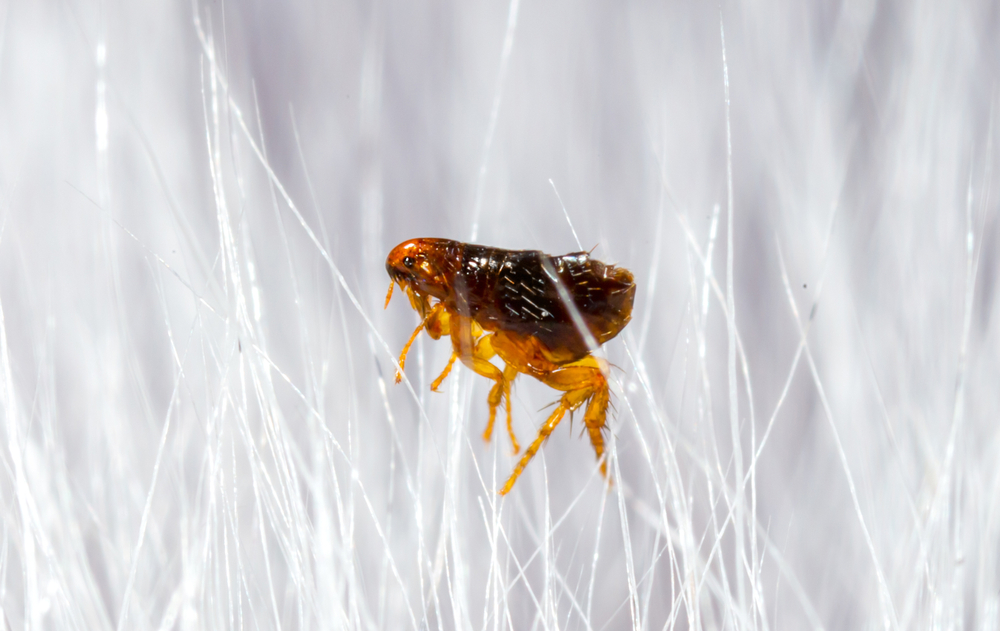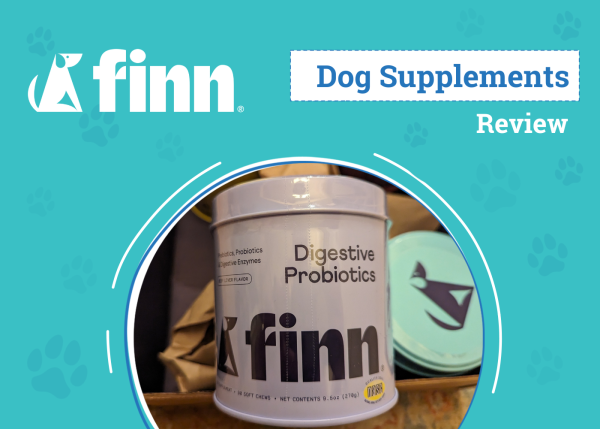As a dog owner, you’ve likely had a few run-ins with fleas. Those black jumping pests feed on the blood of their hosts and can leave small, red bumps on the skin. Apart from seeing them, you’ll often suspect your dog has fleas as soon as they start scratching and nibbling at their skin. As annoying and uncomfortable as fleas can be for your dog, they usually don’t cause too much harm. However, this isn’t always true, and some dogs do get sick from fleas.
Not only do fleas pose a risk of infesting your home if your dog brings them home from the park, but they can be carriers of certain diseases and can make some dogs sick. We’re going to discuss what health problems fleas can cause for your dog and how to prevent them from inflicting your dog in the first place.

What Health Problems Can My Dog Get from Fleas?
Thankfully, most dogs with a few fleas won’t become terribly ill. However, these tiny pests can cause quite a few problems, especially if your dog is overly infested with them. As soon as you see a flea in your home or on your pet, it’s important to reach out to your veterinarian for treatment, as this will help prevent them from reproducing and getting out of control.
Below are a few health issues they can cause for your dog:
1. Tapeworm
Dogs can become infected with tapeworms simply by ingesting a flea that is carrying a tapeworm larva. This can happen quite easily as dogs groom themselves. They might even bite the area where a flea has just bitten them and swallow them as they do so. Once ingested, the tapeworm larvae can grow and attach itself to the intestinal lining.
In some cases, dogs may vomit a tapeworm out, or the segments can be seen in their poop. Dogs with tapeworms need to be given medication from a veterinarian, which will kill the tapeworm, and flea control products should be used as well.
2. Allergic Reaction
A dog can develop flea allergy dermatitis from just a few bites. When a flea bites a dog, its saliva contacts the dog’s skin. Some dogs, especially those that suffer from other forms of allergies, are much more sensitive to the antigens in the saliva and can develop an allergic reaction to it. The signs of flea allergy dermatitis is red, scabby skin that is extremely itchy.
Sometimes, a dog that is infested with fleas will scratch their skin excessively and develop scabs and wounds. Your dog may even begin to lose their hair in patches due to all the licking, biting, and scratching they do to resolve their itch.
All this can quickly turn into an infection, so it’s important to treat your dog when you see signs of dermatitis. Flea allergy dermatitis can be treated with oral flea medications and skin treatment.

3. Bartonella Infection
Although Bartonella infection is more commonly associated with cats, it can also occur in dogs. It is a bacterial infection that is carried by fleas (and several other types of parasites) and spread through their bites. If a dog contracts Bartonella, they may experience fever, joint pain, sore muscles, digestive upset, and nasal discharge.
Dogs can spread Bartonella to humans if they bite them, but this isn’t very common. This infection is diagnosed through blood tests and can be treated with antibiotics. There are no vaccines to protect against Bartonella, so it’s important to get your dog on a good flea and tick preventative.
4. Anemia
Puppies and smaller dogs that have a severe flea infestation may be at risk for flea bite anemia. A few flea bites won’t cause anemia but when many fleas feed on a young dog’s blood, it can deplete their red blood cells, leading to anemia. Anemic puppies may have pale gums, a decreased appetite, weakness, and lethargy.
In severe, life-threatening cases, the puppy may need a blood transfusion. However, most of the time, flea bite anemia can be treated by dealing with the flea infestation through topical or oral treatments and supportive care.

How to Prevent Illnesses from Fleas
The best way to protect your dog from getting sick from fleas is to prevent them from getting bitten in the first place.
Here are a few things you can do to protect your dog from fleas:
- Chat with your veterinarian about the best flea prevention products for your dog, as well as any other pet in your home. Some types can be effective for up to 3 months.
- Limit their contact with unfamiliar animals.
- If your dog likes to be outdoors, treat the yard with pet safe flea sprays. Focus on shaded areas and your dog’s favorite sleeping spots. Cut tall grass, rake up the leaves, and trim the bushes.
- Regularly wash your dog’s bedding with hot, soapy water.
- Vacuum your home regularly.
- Comb through your dog’s coat daily, looking for fleas and flea dirt.
Contact your vet if your dog has recently contracted or been treated for fleas and develops a secondary illness like the ones outlined above.
If you need to speak with a vet but can't get to one, head over to PangoVet. It's our online service where you can talk to a vet online and get the advice you need for your pet — all at an affordable price!

Conclusion
As common as fleas are in households with dogs, they can cause more serious problems than a couple of red bites along your dog’s skin. Dogs can get sick from fleas if they swallow a flea that is carrying tapeworm larva, are allergic to flea saliva, get bitten by a flea that is a carrier of Bartonella, or if they have an extreme infestation that can cause anemia.
Thankfully, most of these health problems are quite simple to treat, but veterinarians will still recommend flea and tick prevention treatments to keep your dog safe from flea bites in the first place.
Featured Image Credit: Vera-Larina, Shutterstock






















